The war on drugs was first declared by Manipur Chief Minister Shri Nongthombam Biren Singh on November 3, 2018, to combat drug trafficking by aiming to destroy illegal poppy cultivation in hill regions, curtailing its distribution and trade using coercive and non-coercive methods.

source: northeastnow
Even though drug trafficking is not a new trend in the northeast state, the surge in poppy cultivation and increase in IDU (injecting drug users) raises a red signal that adversely impacts the northeast regions (NER) and the rest of India.

source: youth ki awaaz
Why Manipur?
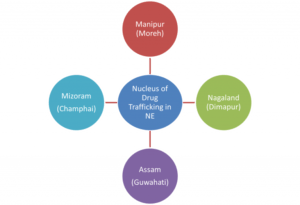
Source: claws
Manipur’s proximity to the Golden Triangle- Myanmar, Laos, Thailand, and Vietnam—is often cited as a major factor for the proliferation of different forms of banned drugs in Manipur. The unsupervised state border makes it convenient for smugglers to transport drugs.
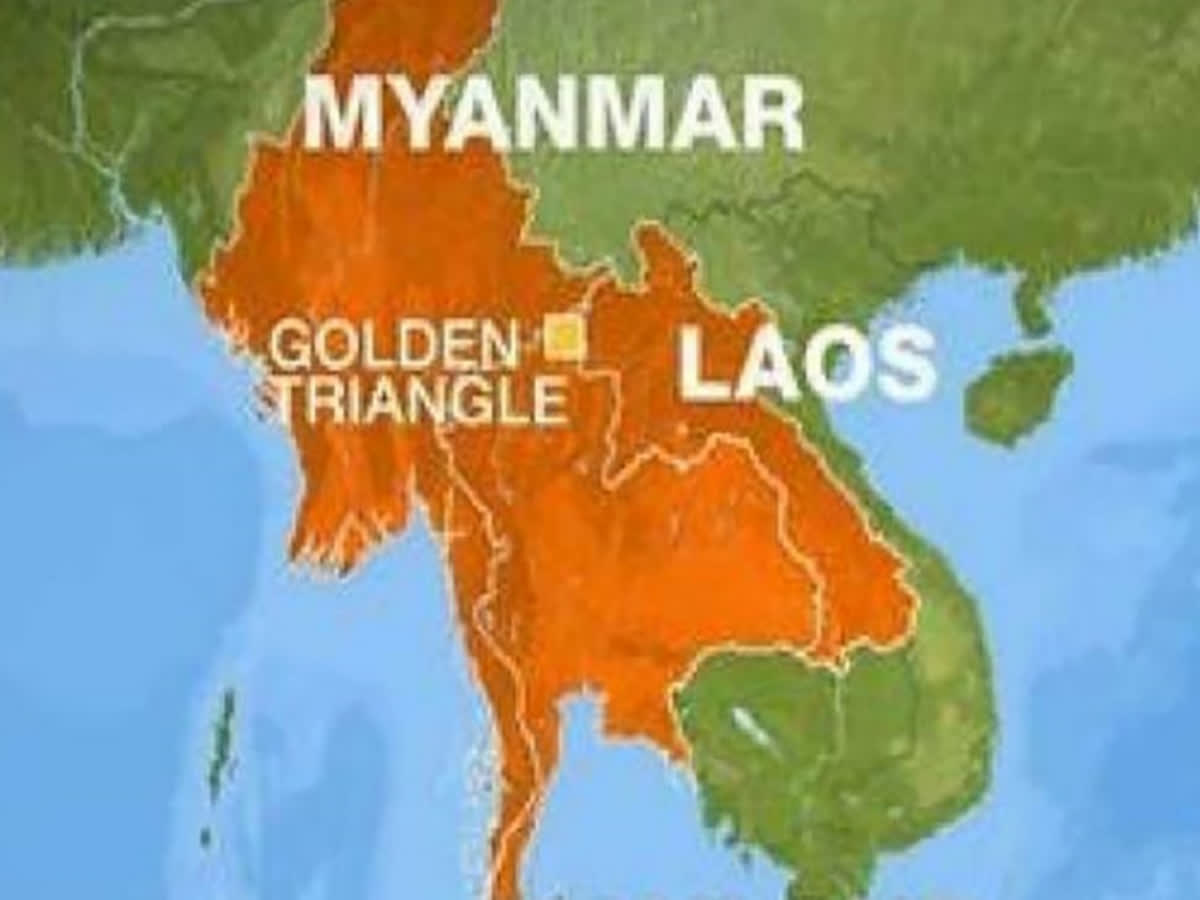
source: ETV Bharat
The very poor economic conditions, lack of job opportunities, and easy availability of drugs- proximity to drug trafficking routes lead to the high number of drug addicts. Drug trafficking is no longer a local trade in Manipur but has become a multinational business involving drug mafias from countries such as China, Myanmar, Bangladesh, and Nepal. Drug mafias or drug kingpins have developed a strong network with Manipur and Myanmar to smuggle poppy out to the Golden Triangle and vice versa.
Failure of ‘ War on Drugs’
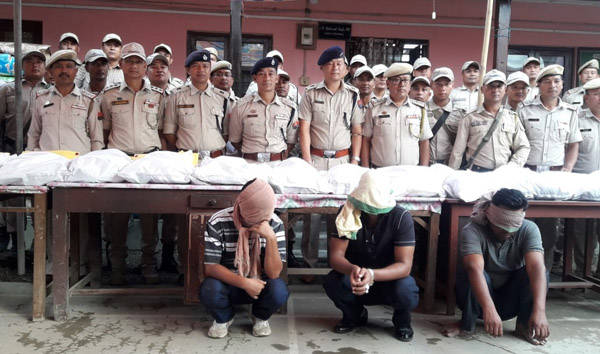
source: Nagaland Post
The base of the Golden Triangle is broadening and the 60-plus private rehab centers of Manipur cannot cope with the increasing number of addicts. The average age at which youngsters get addicted has decreased substantially from about 20-21 years when the powder first made its appearance to around 14-15 years with children still in Classes VIII or IX becoming addicts.
The variety of psychotropic substances available in the market has also increased substantially, from “Number 4” heroin to various pharmaceutical drugs including the deadly “WY” tablets. Ever since the Manipur Government banned the sale of liquor in 1991, youngsters, who would have otherwise settled for a bottle of beer, started succumbing to drugs in their various forms. The disappearance of the pharmaceutical product, commonly known as “SP” (spasmo proxyvon) tablets, also led to “Number 4” heroin becoming more easily available and pushing up the number of addicts in the State.
Source: claws
Tobacco products, Ganja (marijuana), Alcohol, Opium, Spasmo proxivon ( SP), Methamphetamine (WY), Codeine cough syrup, Pseudo-Epherine, etc. are some of the easily accessible drugs available in the state. Among all, opium, methamphetamine, and heroin are illegally transported from Myanmar through Lashio, Mandalay, and Bhamo to Manipur and Mizoram via Moreh and Champhai, respectively.
The most widely available drug in manipur is mixture of opium, chilly powder and salt, which makes it the most crude and dangerous. Unlike ‘Number 4’ which is of the purest forms of opium this doesn’t cost as much, what used to cost Rs 3,000 a gram is now available for Rs 300 a gram.
Driving force behind opium poppy cultivation:
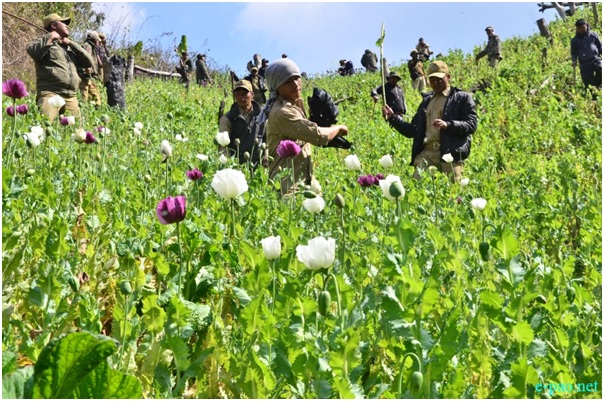
source: MyGov Blogs
Poverty, food insecurity, and material needs are the drivers of illegal opium production in Manipur. Socio-economically, the poppy cultivators belong to the most underprivileged section of the society. They constantly struggle for basic amenities for their survival. they are compelled to grow poppy because it is a profitable occupation, easy to grow along with other crops with the availability of cheap labor. Poppy cultivation is a ‘magic potion’ for them to get rid of their poverty, while the investment comes from drug kingpins. This helps with their constant struggle for basic amenities in their day-to-day lives.

Source: Kabul Times
Until a few years ago, the cultivation of opium poppy was considered a taboo in the community of Manipur. Despite that, farmers started poppy cultivation after witnessing large-scale profits in a short amount of time. Today, poppy farming is openly practiced on a massive scale.
The engraved customs and traditions of Manipuri society also is one of the factors that the number of drug users is hesitant to go down. Ganja or Cannabis and homemade brew have been used for religious purposes since time immemorial. Raw Opium or Kanni was also widely used as a medicine during childbirth to subside delivery pains in ancient times.
Deteriorating conditions:
The base of the Golden Triangle is broadening and the 60-plus private rehab centers of Manipur cannot cope with the increasing number of addicts. The average age at which youngsters get addicted has decreased substantially from about 20-21 years when the powder first made its appearance to around 14-15 years with children still in Classes VIII or IX becoming addicts.
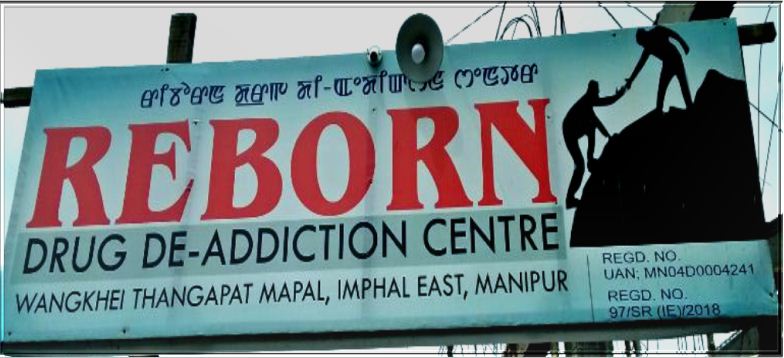
Source: Rehabs.in
The variety of psychotropic substances available in the market has also increased substantially, from “Number 4” heroin to various pharmaceutical drugs including the deadly “WY” tablets. Ever since the Manipur Government banned the sale of liquor in 1991, youngsters, who would have otherwise settled for a bottle of beer, started succumbing to drugs in their various forms. The disappearance of the pharmaceutical product, commonly known as “SP” (spasmo proxyvon) tablets, also led to “Number 4” heroin becoming more easily available and pushing up the number of addicts in the State.
Measures taken by the government:
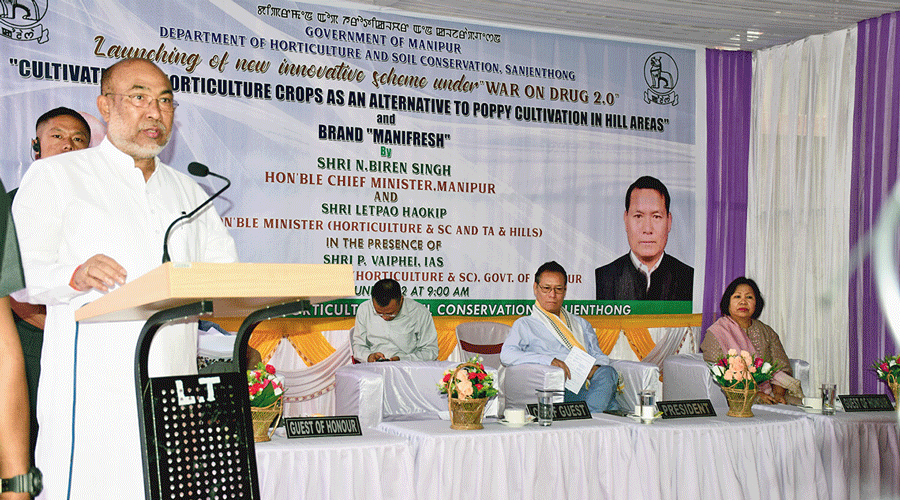
source: telegraph India
Despite poppy farming being banned in Manipur, the cultivation is widespread. Interestingly, many farmers who are dependent upon opium for earning their livelihood are not even aware of the fact that it is illegal. Their only concern is to earn enough for their well-being, and their children’s education. This can only be attained by farming and selling opium.

source: Eastern Mirror
The government has destroyed 18,664 acres of poppy plantations from 2017 to 2023, data from Manipur’s special anti-drugs unit Narcotics and Affairs of Border (NAB) shows. The state government led by N Biren Singh has announced the removal of 15,000 acres of poppy fields, mainly in Kuki-dominated hill areas, and the arrest of over 2,500 people involved in drug-related cases since 2017. Even as the state claims to wage a ‘War on Drugs’, the supply of heroin continues unabated and the price of the drug in the market has only reduced.
Until the government implements proper alternative means of employment and provides compensation for destroying the poppy fields the vicious cycle of poppy cultivation for a better livelihood will continue. This coercive method does not seem effective in the long run until the government looks at the root causes of the problems and the reasons that push people to take the wrong path.
ALSO READ:
Siddhanth Kapoor Shakti Kapoor’s Son The New Poster Boy For Drugs In Bollywood.



















































































